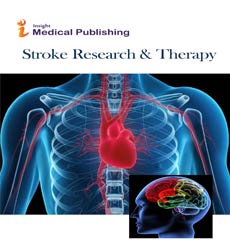Medications to Prevent Complications during Stroke
Miyamoto Mitao
Department of Medicine and Clinical Science, Kyushu University, Fukuoka, Japan
DOI10.36648/ipsrt.8.1.197
Miyamoto Mitao*
Department of Medicine and Clinical Science, Kyushu University, Fukuoka, Japan
- *Corresponding Author:
- Miyamoto Mitao
Department of Medicine and Clinical Science, Kyushu University, Fukuoka,
Japan,
E-mail: mitao@gmail.com
Received date: February 27, 2024, Manuscript No. IPSRT-24-18890; Editor assigned date: February 29, 2024, PreQC No. IPSRT-24-18890 (PQ); Reviewed date: March 14, 2024, QC No. IPSRT-24-18890; Revised date: March 21, 2024, Manuscript No. IPSRT-24-18890 (R); Published date: March 28, 2024, DOI: 10.36648/ipsrt.8.1.197
Citation: Mitao M (2024) Medications to Prevent Complications during Stroke. Stroke Res Ther Vol.8.No.1: 197.
Description
Every year, strokes affect millions of lives worldwide, leaving devastating consequences in their wake. As one of the leading causes of disability and mortality, strokes pose a significant public health challenge. Yet, despite their prevalence, many people remain unaware of the risk factors, symptoms, and preventive measures associated with strokes. In this article, we delve into the intricate details of strokes, shedding light on their causes, symptoms, treatment options, and strategies for prevention. A stroke, also known as a cerebrovascular accident occurs when blood flow to a part of the brain is interrupted or reduced, depriving brain tissue of oxygen and nutrients. This disruption in blood flow can be caused by either a blockage or the rupture of a blood vessel. Without prompt medical intervention, strokes can lead to brain damage, disability, or even death. Ischemic strokes account for the majority of stroke cases and typically occur when a blood clot obstructs an artery supplying blood to the brain. These clots often form in areas where arteries have been narrowed or damaged by conditions such as atherosclerosis, hypertension or diabetes. On the other hand, hemorrhagic strokes result from the rupture of a weakened blood vessel in the brain, leading to bleeding into the surrounding tissues. Hypertension is the most significant risk factor for strokes, as it can damage blood vessels and increase the likelihood of clots or ruptures. Tobacco smoke contains chemicals that can damage blood vessels and promote the formation of blood clots. Individuals with diabetes have a higher risk of developing cardiovascular diseases, including strokes, due to elevated blood sugar levels. Being overweight or inactive can contribute to other risk factors such as hypertension, diabetes, and high cholesterol. Elevated levels of cholesterol can lead to the buildup of plaque in arteries, narrowing them and increasing the risk of clot formation. Heavy drinking can raise blood pressure and contribute to other risk factors for stroke.
Treatment options
Conditions such as atrial fibrillation, heart valve defects, and previous heart attacks can increase the risk of blood clots forming in the heart and traveling to the brain. Recognizing the signs of a stroke and seeking immediate medical attention is crucial for minimizing brain damage and improving outcomes. Common symptoms of stroke sudden numbness or weakness in the face, arm, or leg, especially on one side of the body. Confusion, trouble speaking, or difficulty understanding speech. Trouble seeing in one or both eyes, sudden severe headache with no known cause, dizziness, loss of balance, or coordination. If you or someone else experiences any of these symptoms, it's essential to call emergency services immediately, as timely treatment can significantly improve outcomes. The treatment of stroke depends on whether it is ischemic or hemorrhagic and how quickly medical attention is sought. In the case of ischemic stroke, treatments focus on restoring blood flow to the brain and preventing further damage. The administration of clotbusting medications such as tissue plasminogen activator can dissolve blood clots and restore blood flow if given within a few hours of symptom onset. For certain individuals with large artery blockages, mechanical thrombectomy a procedure to remove the clot using a catheter-based device may be performed. Additionally, medications to lower blood pressure, control blood sugar levels, and prevent blood clots may be prescribed to reduce the risk of recurrent strokes. In contrast, the management of hemorrhagic strokes involves controlling bleeding and reducing pressure on the brain caused by the accumulated blood. This may include surgical procedures to repair ruptured blood vessels or relieve pressure, as well as medications to prevent further bleeding and manage complications. Following a stroke, rehabilitation plays a crucial role in helping survivors regain lost abilities and adapt to any permanent disabilities. Physical therapy, occupational therapy, speech therapy, and other interventions may be recommended to improve mobility, communication, and overall quality of life.
Preventing strokes
While certain risk factors for strokes, such as age and family history, cannot be changed, there are many lifestyle modifications and preventive measures individuals can adopt to reduce their risk, maintain a Healthy Lifestyle, eating a balanced diet, exercising regularly, maintaining a healthy weight, and avoiding tobacco and excessive alcohol consumption can significantly lower the risk of stroke. Control blood pressure, regular monitoring and management of blood pressure through lifestyle changes and medications can help prevent strokes. Manage chronic conditions, proper management of conditions such as diabetes, high cholesterol and heart disease is essential for reducing stroke risk. Be aware of stroke symptoms, educating oneself and others about the signs and symptoms of stroke can facilitate prompt recognition and treatment. If stroke symptoms occur, do not delay seeking medical help. Time is of the essence when it comes to stroke treatment.
Open Access Journals
- Aquaculture & Veterinary Science
- Chemistry & Chemical Sciences
- Clinical Sciences
- Engineering
- General Science
- Genetics & Molecular Biology
- Health Care & Nursing
- Immunology & Microbiology
- Materials Science
- Mathematics & Physics
- Medical Sciences
- Neurology & Psychiatry
- Oncology & Cancer Science
- Pharmaceutical Sciences
